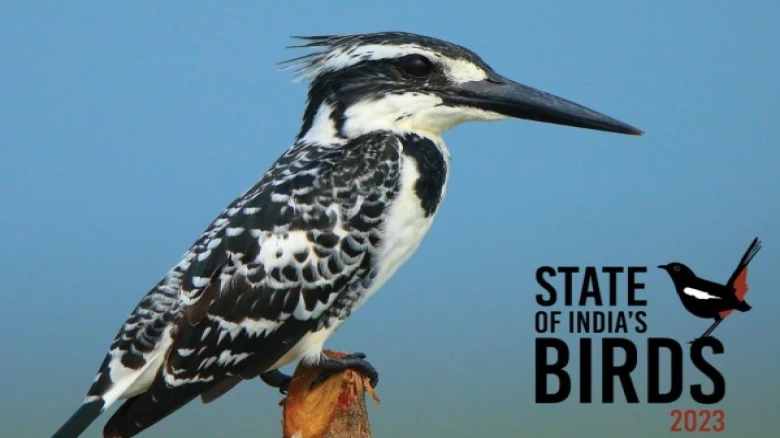The study claimed that open habitats require management practices that allow them to preserve...
Digital Desk: The 2023 edition of the 'State of India's Birds' report, an annual assessment of the distribution range, trends in abundance, and conservation status for most of the bird species that are regularly present in India, has identified "highest conservation priority" for four state avian species.
In total, 178 species are categorised as 'High Conservation Priority' across the country, with 28 from the northeastern region included.
According to the report, these species have been designated as high priority because their range within India is very limited, their long-term and current annual trends are either inconclusive or there is insufficient data to calculate abundance trends, and additional surveillance is required to understand the patterns of these species with small range sizes.
It stated that birds in open habitats face a variety of challenges that are typically specific to such environments. "In general, these birds face two types of threats: those resulting from the conversion of open to closed habitat and those that directly cause mortality and lower survival," according to the study report.
The research study suggests rigorous monitoring of the Arunachal Pradesh hornbill. The border state is home to three hornbill species: Great Hornbill, Wreathed Hornbill, and Oriental Pied Hornbill.
"Overall, encounter rates appear to have remained stable for Great Hornbill and Wreathed Hornbill, although some years have shown a dip in numbers, with a small increase in 2019 and 2020, while "Oriental Pied Hornbill encounters have been more than double of the two large hornbill species, with encounter rates being five times higher in 2020 than in other years," the report added.
According to the research, "the Slender-billed Vulture, a critically endangered resident of the Himalayan Terai and the Brahmaputra floodplains, is under threat of "deliberate carcass poisoning."
"If vulture declines are to be halted and reversed, we urgently need measures to end veterinary use of toxic NSAIDs. A combination of bans, education, and alternatives may be required for this," the research added.
In addition to the reports, open habitats require management practices that allow them to preserve their "openness" as conservation research and policy.

Leave A Comment